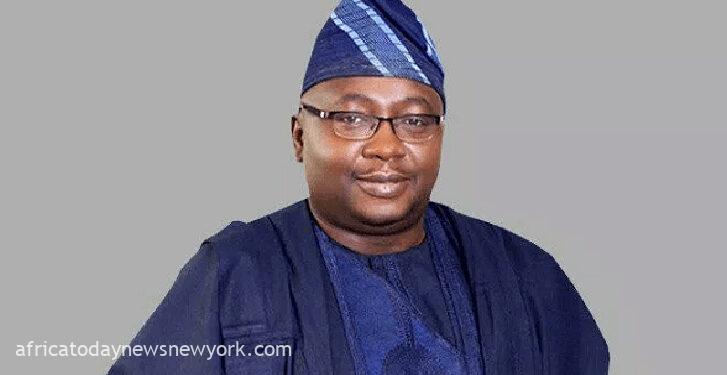This Federal Government of Nigeria has announced that it spent close to ₦700 billion to subsidize electricity in the year that just. As it is today, the Federal Government still subsidizes electricity because the current tariff DISCOs are allowed to charge is not cost-reflective.
The Minister of Power, Adebayo Adelabu, made these remarks during his official working visit to the Ibadan Electricity Distribution Company (IBEDC) Head Office in Ibadan as part of his nationwide working visit, beginning in Oyo State, on Monday.
“There must be an upward review of the electricity tariff in order to reduce the amount of subsidy required. If we make the tariff 100 per cent cost-reflective, the burden will be too much on our people.
“We don’t want that. To reduce the burden on our people, it is only a fraction of the tariff review that will be reflected.”
He said before the tariff review there would be sensitization and advocacy to justify the upward review. He added that the tariff review would be “graduated,” meaning that a higher review would go to the high-income segment of society, while the vulnerable would pay less.
Adelabu also stated that “there must be an improved power supply” for the review to take place.
The visit, according to him, is to assess and evaluate electricity infrastructure across the country.
Read Also: Impending Electricity Tariff Hike As Discos Seek Review
“It also includes visiting the institution that carries the primary responsibility of electricity distribution in the state,” he added.
The minister had earlier visited major transmission installations in the state, including the Ayede 330/132KV transmission substation in Ibadan.
He said that he would also commission some solar-powered mini-grids in certain local government areas in the state under the supervision of the Rural Electrification Agency (REA).
“I am happy to be here for the first time to meet with the management of IBEDC. I am here to discuss the state of performance in the power sector. Effort to improve its performance is a collective one.”
He noted that the performance of the electricity sector was not satisfactory, hence the need for government and private sector stakeholders to cooperate.
“IBEDC is the largest of the DISCOs in terms of coverage. The consumers’ expectations of us are very high, and we cannot afford to disappoint them.
President Bola Tinubu, during his election campaign, promised a stable power supply to the people. In his priority areas, power comes first.
There is nothing we can achieve in terms of economic growth and national development without a reliable electricity supply.”
He said the visit to the Ayede substation established in 1978 was to “look at the possibility of an upgrade and also the establishment of another 330KVA substation in Ibadan to reduce the load on the existing one.
We are also working on establishing a new 132KVA substation in Eleyele and UI, which we believe will also improve the capacity of the transmission infrastructure.”
He said the new 132KVA substation in Oyo town would be upgraded from single to double circuit to improve its capacity.
“There are a number of substation projects in the Oke Ogun area that, when completed, would improve power supply in Oyo State.”
In his response, Kingsley Achife, the Chief Executive Officer of IBEDC, after acknowledging the minister for his first visit to the company, asked for a correction in the electricity tariff.
He noted that the tariff was not cost-effective due to the rising cost of gas. “Liquidity is at the heart of what we do.
Even the MDAs are not paying. Since I came in as CEO in July 2022, we have put in 220,000 metres in Ibadan to date. We are the leading metre supplier for DISCO. We are happy that the government wants to intervene.”
He said IBEDC has opened a transformer repair workshop at Eleyele with about 50 transformers to work on.
“We are sure that we will double that number this year. We have also ordered 300 new transformers to be delivered in the next quarter.”
Adelabu, at the meeting, decried the metering gap among DISCOs in the country.
“People are tired of estimated billing. Metering is key. Before the end of this year, we are looking at the possibility of cancelling estimated billing anywhere in the country.
“How do we achieve that? There are a lot of meter-acquisition initiatives by the federal government across the country.
However, DISCOs must accelerate the pace of metering customers so that there will be transparency in the bills you give them.”
Adelabu added that with his position as the chairman of the newly established Presidential Metering Initiative (PMI), the Federal Government would work with DISCOs to close the metering gap.
“As it is today, we have a close to 8 million-meter gap in Nigeria. What this initiative aims to achieve is to close this metering gap completely within a period of three to five years.
This means an average of two million metres will be acquired nationwide yearly. Achieving this laudable target is not an option.”
The minister also lamented the lack of transformers and the practice of communities contributing money to pay for transformers.

